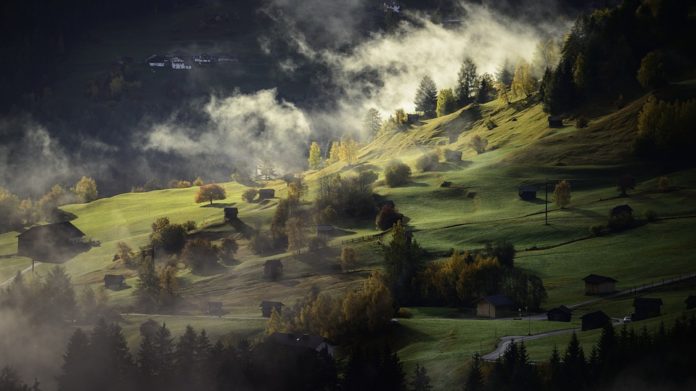In a new study by UC Berkeley scientists, the amazement we feel in nature can significantly decrease the side effects of post-traumatic stress disorder. Scientists tracked mental and physiological changes in war veterans and at-risk internal city youth amid white-water rafting trips.
Psychologists tested nature’s healing powers on 72 military veterans and, separately, on 52 teens from underserved Bay Area communities during and after dozens of one- and two-day rafting excursions along the South Fork of the American River in California. They also studied a dozen veterans during and after a four-day white-water rafting trip along Utah’s Green River.
The study suggests that wonderment — rather than satisfaction, pride, entertainment, happiness, and other positive feelings — is the single impression that goes the furthest in boosting one’s general feeling of prosperity.
Lead author Craig Anderson, a postdoctoral researcher and fellow at UC Berkeley and at UCSF, said, “It’s the active ingredient that explains why being in nature is good for us. The more awe people felt during the white-water rafting trips, the happier and less stressed they were a week later.”
“We found that people who shared the same raft expressed similar emotions and hormone profiles.”
For sure, seven days after river-rafting, contemplate partners announced, all things considered, a 29 percent diminishment in post-traumatic stress disorder (PTSD) indications, a 21 percent diminish when all is said in done pressure, a 10 percent change in social connections, a 9 percent change in life satisfaction and an 8 percent expansion in happiness.
During the study, scientists targeted war veterans and at-risk teens due to their heightened exposure to the kinds of trauma that cause PTSD, a potentially debilitating condition arising from harrowing life experiences.
An estimated 31 percent of Vietnam veterans, 10 percent of Gulf War veterans and 31 percent of veterans of wars in Iraq and Afghanistan have been diagnosed with PTSD. At the same time, untold numbers of youths in underserved communities where gun violence is common suffer from war-zone-like rates of PTSD.
Scientists also tested the veterans’ and the teens’ stress hormones and markers of immune function before and after the rafting trips. They tracked study participants’ emotional trajectories through their daily journals. In addition, they viewed video footage from GoPro cameras worn by study participants and coded their facial expressions, body language, and interactions to analyze their social and psychological states.
Every one of the measures indicated a huge change in their well-being and prosperity following the white-water rafting trips.
In a different report, additionally distributed in the journal Emotion, specialists took a gander at the impacts of more quiet nature trips on 119 UC Berkeley students as they journaled about their day-by-day encounters throughout two weeks.
The outcomes showed that, of every one of their encounters, their experiences with nature were destined to inspire sentiments of amazement, which thusly enhanced their feeling of prosperity.
